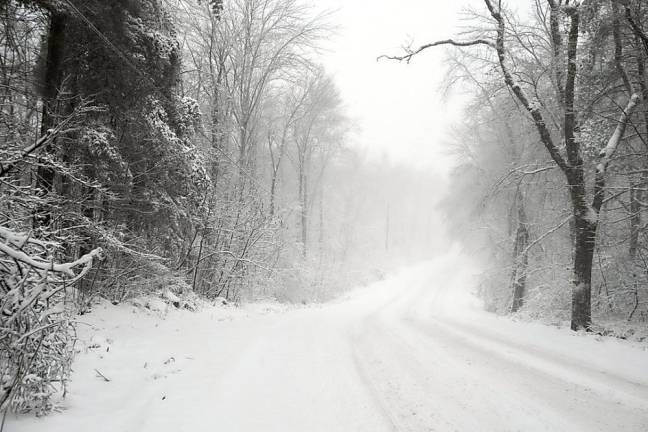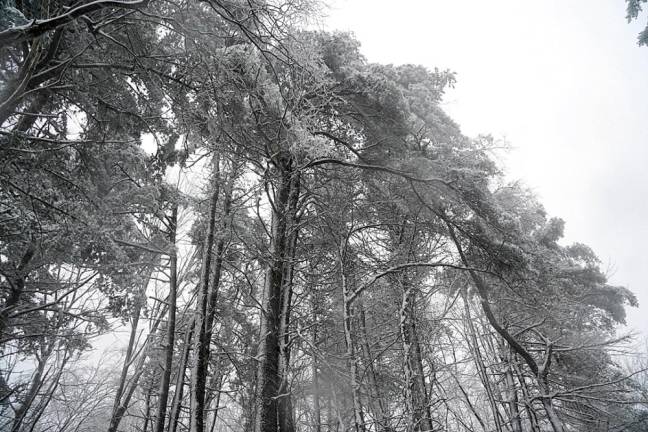Snow closes Vernon, knocks out power
Vernon. The snowstorm dropped up to 12.7 inches in Highland Lakes and closed the Vernon Township School District for two days and knocked out powers to thousands of Sussex Rural and JCP&L customers.


The season’s first winter storm that dropped 10.5 inches of snow on Vernon Township and closed area schools for two days left thousands without power on Sunday and Monday.
The heaviest snow was reported in Highland Lakes, which reported 12.7 inches.
As of 11:25 a.m. Wednesday, Sussex Rural Electric reported that 6,649 were still without power, with the most being in Vernon Township (3,667) and Wantage (911). That's down from 6,875 in Vernon and 3,112 on Tuesday afternoon.
At about 9:30 a.m. Tuesday, Sussex Rural reported that almost all its members were without power, as the utility’s transmission lines were taken down by falling trees, which prevented workers from energizing substations.
Cooperative officials said restoring power may be a 2-3 day process.
Jersey Central Power & Light reported at 11:25.m. Wednesday that 501 customers in Vernon Township were without power, as well as 180 customers in Wantage and 26 in Sussex Borough.
On Tuesday afternoon, JCP&L reported 1,152 were out in Vernon, 392 in Wantage and 39 in Sussex Borough.
Vernon Township Police Department Capt. Keith Kimkowski said that most of the township’s roads were open as of 2:50 p.m. Tuesday, although Route 515 from Highland Lakes Road to Route 23 and Route 517 from Route 94 to Rudetown Road were still closed, due to multiple trees and power lines being down.
Kimkowski said the department responded to 13 motor vehicle accidents between Sunday afternoon and Tuesday morning.
The Vernon Township Senior Center opened at 7 a.m. Tuesday for residents to warm up, charge devices and use the bathrooms, according to the police department.
After the storm, State Sen. Steve Oroho and Assemblymen Parker Space and Hal Wirths urged Gov. Phil Murphy to get behind a state Board of Public Utilities proposal to allow power companies to trim trees around power lines without having to go through bureaucratic red tape.
Enough is enough,” Oroho said. “Downed trees are usually the cause of most of these outages, so it makes sense to allow utility companies to trim back branches and vulnerabilities that may threaten electric service.”
The bipartisan legislation sponsored by all three legislators would authorize an electric public utility to use all reasonable methods to maintain and remove hazardous vegetation. The bill would also establish a municipal program to develop effective strategies to implement the provisions of this bill. The bill does not allow utilities to clear cut vegetation that does not interfere with power lines.
“Blackouts are more than a frustrating inconvenience,” Space said. “Lost power can quickly become a life or death situation for those who depend on medical equipment for survival.”
The Assembly version of the bill passed the Assembly last December and the bill was scheduled for a full Senate vote earlier this year, but was pulled when the governor’s office expressed concern.
“Losing electricity during heavy winter weather was a reoccurring problem last year, and our constituents are frankly fed up,” Wirths said.